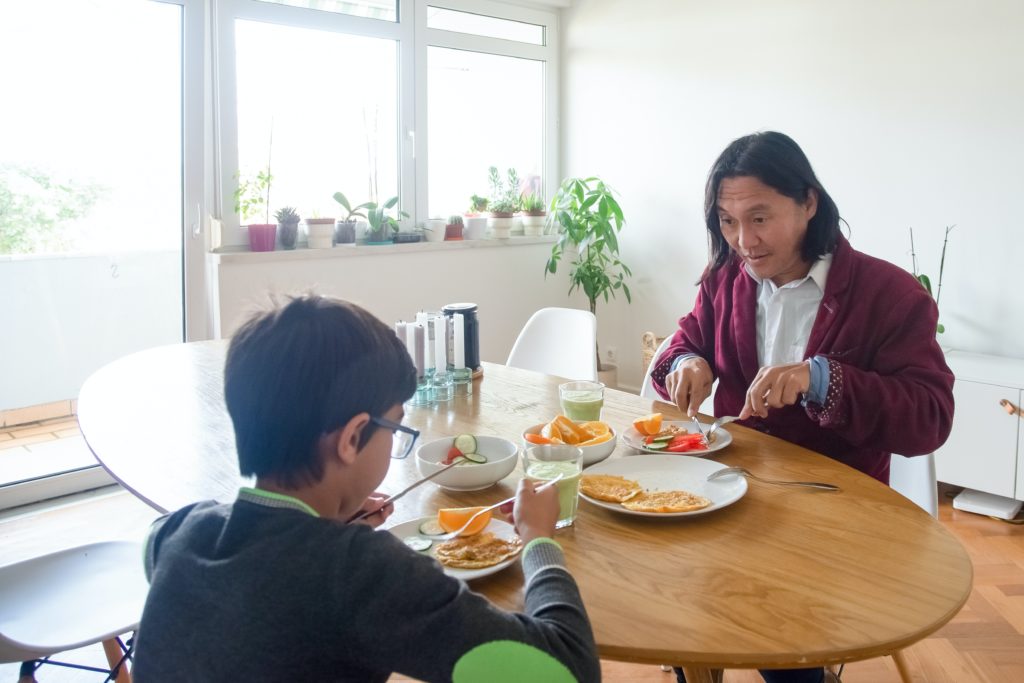Children with impulse control issues can struggle to manage their emotions and keep their actions in check, which can lead to challenges in inculcating good behaviors and also in their general development. As a parent, supporting your child during these challenges is important for their emotional well-being and healthy development. In this article by Hub FLX, we’ll discuss useful strategies parents can use to help their children with impulse control issues.
Contents
5 Impulse Control Activities for Kids
Here are a few of the many activities parents can try to help their child manage their impulse control issues:
- Use a Fidget Spinner: Fidget toys can be a helpful tool for kids with impulse control issues, as they provide a great outlet for restless energy. Additionally, they can be used at home, school, and traveling. FIdget toys also help to reduce the chances of hurting actions such as hitting a sibling or interacting with other items in the house.
- Try Martial Arts: Participating in martial arts is beneficial for kids with ADHD and other impulse control issues. This is because martial arts training includes consistent verbal cues, a variety of movements, and also a tangible reward. Additionally, it helps to burn energy in a constructive way, reducing restlessness among kids.
- Play Simon Says: This simple game can help your child to practice listening and following instructions, which can help them to pay attention in school and other activities as well. One of the reasons this game is often useful is because it includes consistent verbal cues.
- Teach Them Deep Breathing: Deep breathing plays a key role in managing stressful situations and anger among children. Taking deep breaths rather than reacting to every frustrating event will help them manage their emotions better. One of the best ways to help them adopt this behavior is to practice it yourself and provide them visual cues when you notice them being upset.
- Establish Rules: Providing clear and structured instruction can help kids improve impulse control as they understand what is expected of them, according to Very Well Mind. This is especially helpful while facing new situations, which could be social, connected to extracurriculars, or even activities at school or home. It’s best to clearly explain to them the reasoning behind the rules and also the consequences of breaking them.
- Remain Consistent In Your Actions: Maintaining consistent actions and expectations helps develop a routine and establish good behaviors. For instance, if your child has a habit of exiting the car before you, make it a rule for them to wait and let you get them out. This will be helpful in public spaces such as parking lots or stores. Similarly, you can teach them to hold your hand while they walk in public.
Teach Them To Declutter
As reported by Piedmont, being in a cluttered space can lead to stress, which in kids with impulse control can then translate to outbursts or restless reactions. Teaching your child to clean up after themselves is a great way to reduce the chances of them being stressed.
For instance, keep a large basket where kids can easily collect their toys after use. This same behavior can then be followed to teach them good etiquette about picking up their plate after eating and keeping their room tidy as well.
Take Them For Walks
Regular physical activity helps kids release pent-up energy, which plays a positive role in mood regulations and control over emotions. Taking regular walks with your child is a great daily activity to practice. Additionally, walking together also provides you the chance to spend quality time with your child and helps them become more self-aware of their actions and emotions.
If you want to find the best neighborhoods to walk in, you can sort out areas based on their walk score. The higher the score, the better the areas are in terms of accessibility and convenience.
Prioritize Your Child’s Needs
At times, you might find it challenging to be there for your child at all times. This is usually the case when things at work become hectic or other responsibilities must be taken care of. However, even during these times, it is important to dedicate at least a couple of hours a day to your child’s well-being.
Having a bedtime or breakfast routine is a good option as those have a higher likelihood of consistently happening. One-on-one time with your child is important to track their progress and help them with any difficulties they are having. Additionally, at times when they are facing a stressful challenge such as public speaking or other new tasks, having your support will help regulate their actions better. Supporting kids with impulse control issues is important for their emotional and physical well-being. Using the strategies explored in this article parents can find a handful of ways to help their child manage their emotions and actions. Additionally, going for walks and teaching kids to declutter can become good long-term habits. But, even when you’re in a time crunch, remember to make time to support your kids in their everyday needs.







